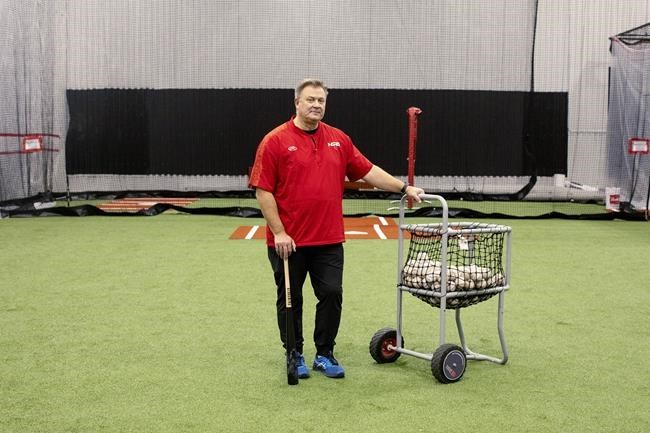OTTAWA — The sounds of baseballs hitting bats and gloves are fewer these days at Robert Johnston's training centre in Toronto because of public health restrictions.
Since last March, the federal government has rolled out unprecedented amounts in subsidies and loans to help businesses like Johnston's bridge to better times. Except Johnston continues to strike out on the help, all because he opened during the pandemic.Â
Asked for his business's outlook absent any aid, Johnston was blunt: "We wouldn't be able to make. We wouldn't make it. We'd have to close the doors, unfortunately."
His story is not unique and it's an issue that has been on the government's radar last spring, yet no fix has arrived.Â
The Conservative party's small-business critic Pat Kelly asked federal officials about the lack of movement during a committee hearing Thursday. He was told by a Finance Department official that the government recognized the system is not perfect, that gaps exist, and that those gaps were being reviewed.
The Commons committee was also told that some of the eligibility requirements for business-oriented aid, like having a payroll account, were critical to maintaining integrity in the system.Â
Dan Kelly, president of the Canadian Federation of Independent Business, said he believes the government is sensitive to the issue. Broadening eligibility can be complicated, he said, but there are growing frustrations that the Liberals don't appear closer to a solution.
"These are the businesses that we're going to count on for getting us out of this recession. They're new business owners, often younger entrepreneurs, they're ready to hire or have hired people," Kelly said.
"And now they're crumbling."
To avoid permanent closures of newly opened businesses, the CFIB has suggested the government could add extra layers of screening to verify owners' investments as part of eligibility rules.
Johnston's company, for example, invested about $400,000, including turf, netting and hitting machines for an indoor workout space that opened in November. It also pre-sold about four-fifths of rental time as proof of viability before the property owner would agree to a lease.
The company, NRS Institute, brought in $70,000 in sales in the first month. Since second-wave lockdowns kicked in, revenues fell to $10,000 a month, Johnston said.
"They can't really lump all businesses as being fraudulent businesses. There are too many of them that are not, like ours," Johnston said.
"They need to come up with a process ... because the current system isn't working."
Another option the CFIB proposed for federal eligibility rules would be to let newly opened companies use provincial averages or shorter time frames to calculate revenue losses so they could access aid.Â
The group also suggested retroactive support to new businesses for the time they were shut out of aid and have had to cover costs on their own.
All the issues were laid out to Finance Minister Chrystia Freeland late last year.
"The federal government continues to actively assess its support measures to ensure workers and businesses — including new businesses — have the support they need," said Katherine Cuplinskas, a spokeswoman for Freeland.
"We continue to welcome feedback from Canadians and businesses on how we can best be there for them — as we have done since the start of the pandemic."
Saki Sihota said she just wants to be heard.
She has been covering costs for the last year at her Toronto restaurant, Pur & Simple. Its doors were to open last March, but lockdowns and restrictions delayed that until late September — 10 days before renewed restrictions forced it to close for indoor dining.
The 51-year-old said she and her husband signed her franchise agreement in 2019 but can't show the revenue drop the federal government requires to receive wage subsidies and rent relief. They've cut their staff from 32 to six.
"I don't want to have a handout from the government, I just want to be able to get on with my business," she said.
"But if I can't, then guess what? We need the help ... just to get us by this hard time."
This report by The Canadian Press was first published Feb. 19, 2021.
Jordan Press, The Canadian Press




